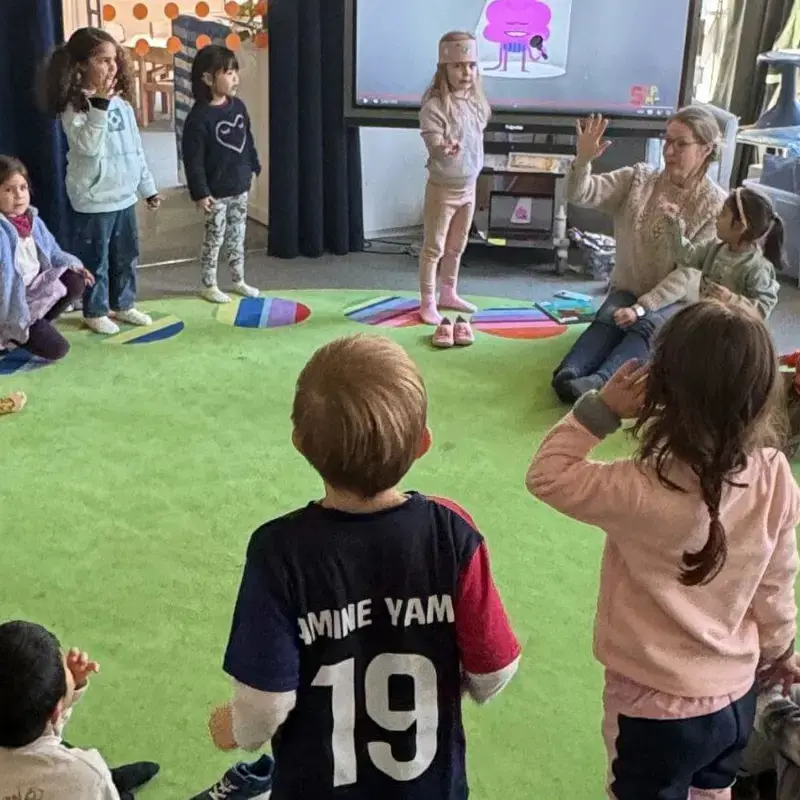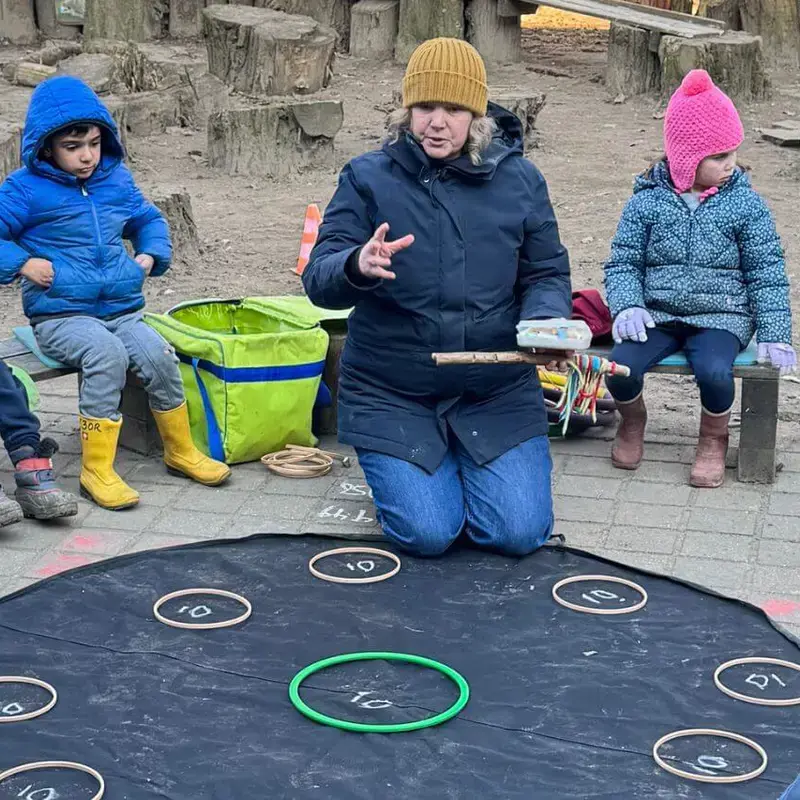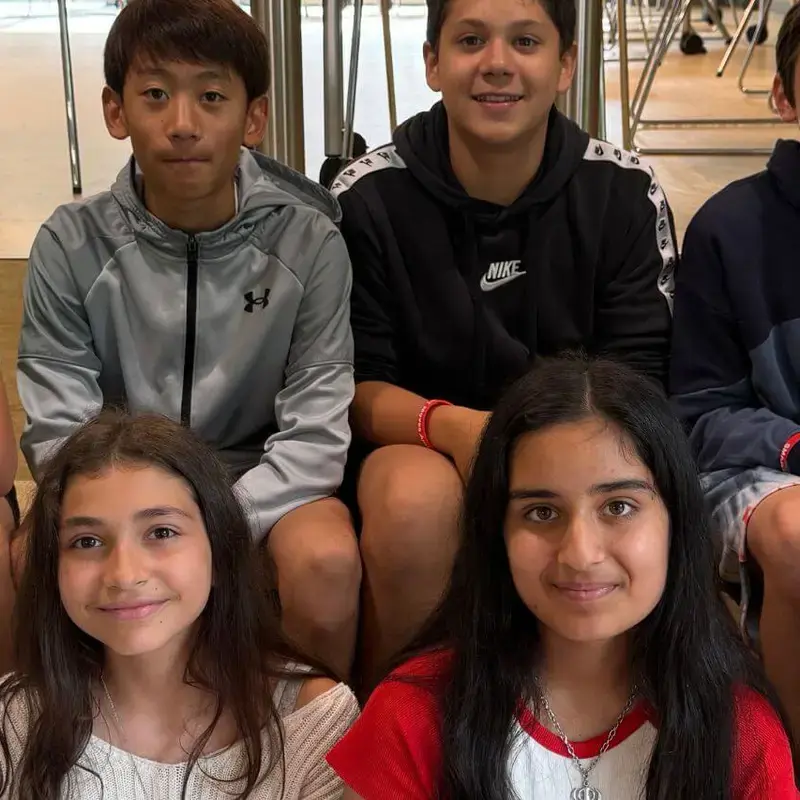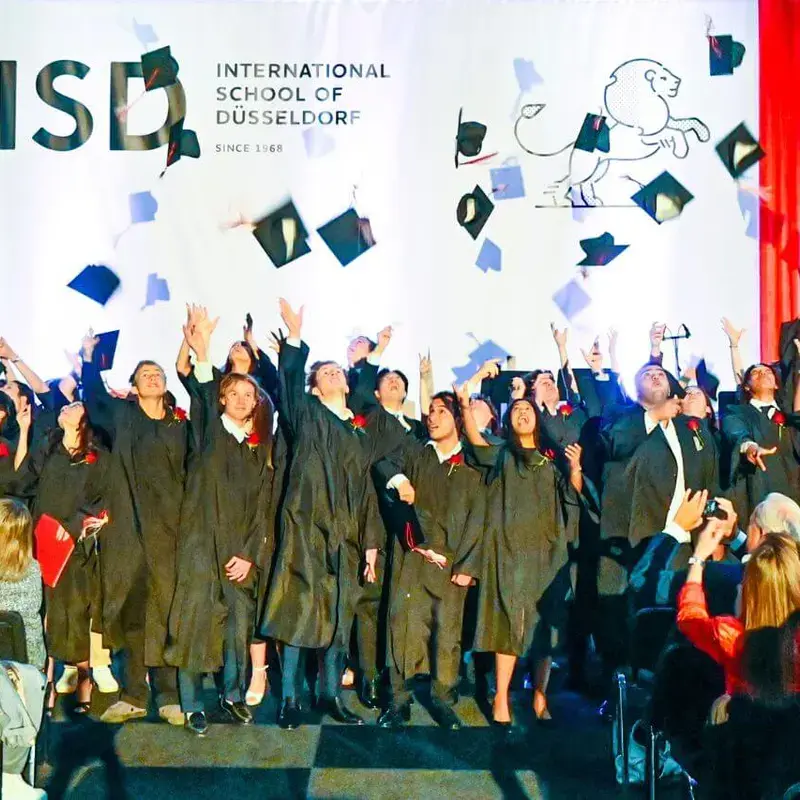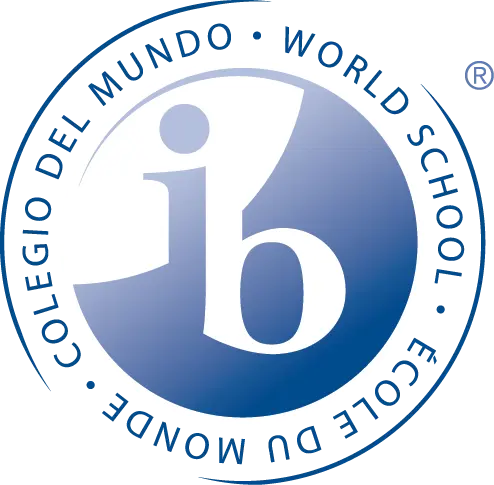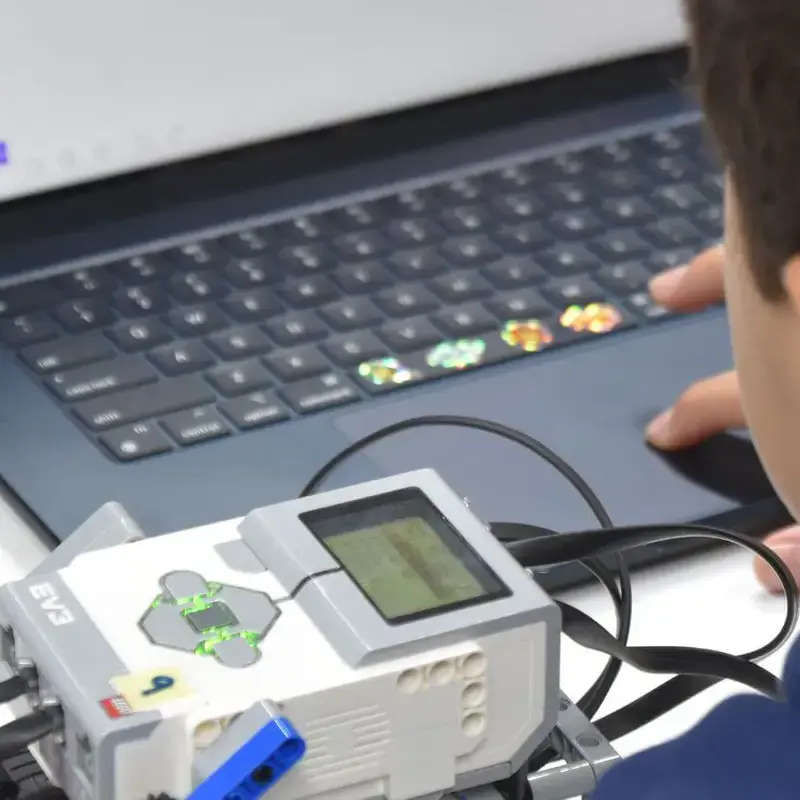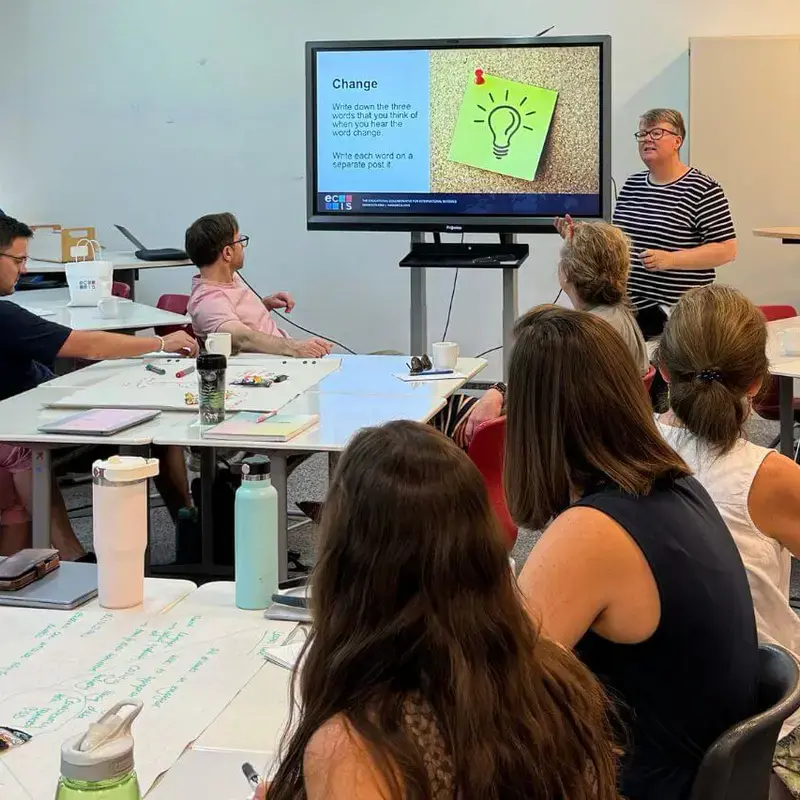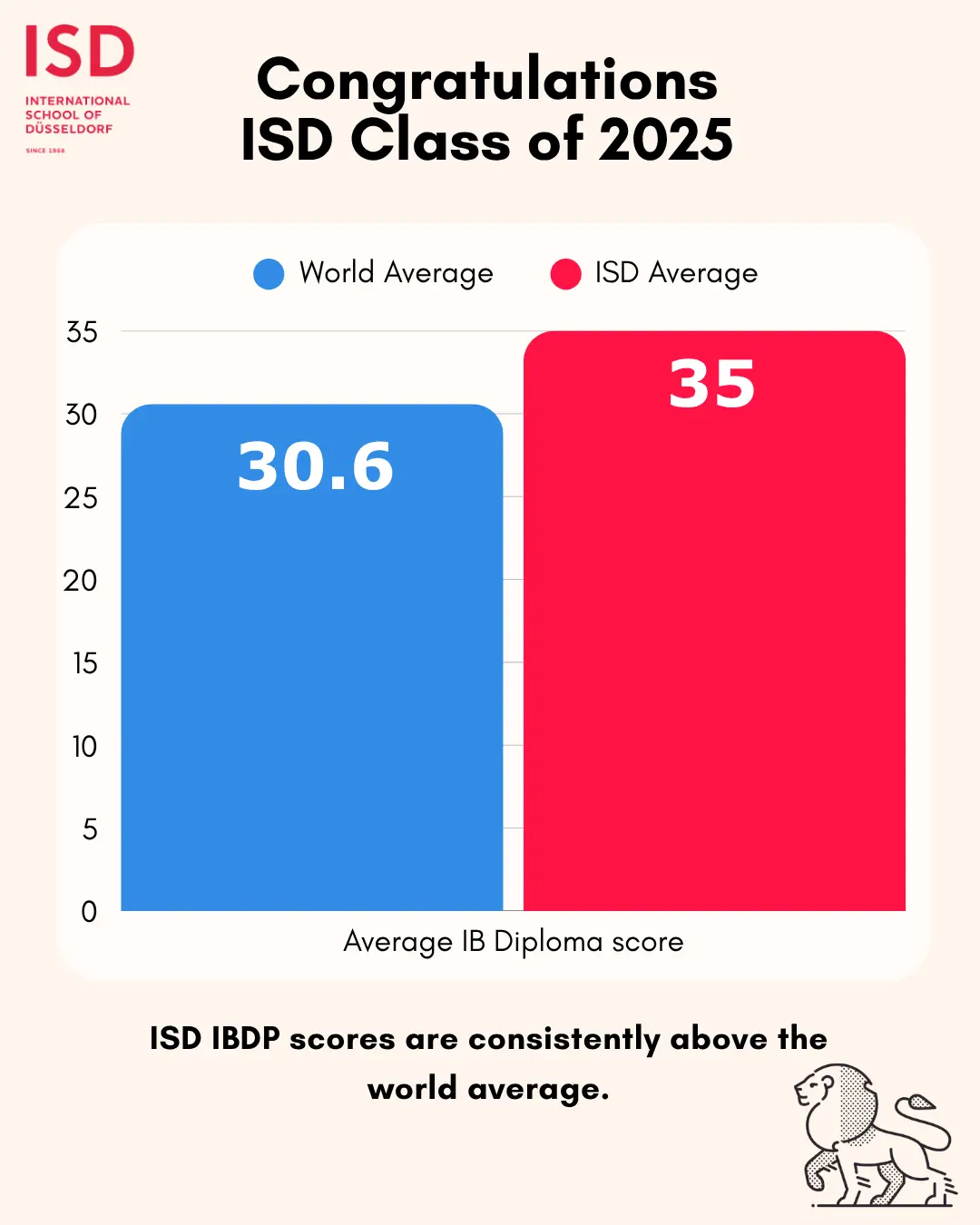TEACHING & LEARNING AT ISD
At the International School of Düsseldorf, we empower students to "go beyond where they think they can go" through immersive, collaborative learning experiences. As a Full IB Continuum school, we prioritise critical thinking and curiosity, helping students develop the skills they need for lifelong learning. We prepare our students to be thought-leaders, to challege the status quo and to achieve success beyond ISD.
| Kindergarten / Early years | Elementary | Senior |
ELEMENTARY SCHOOL
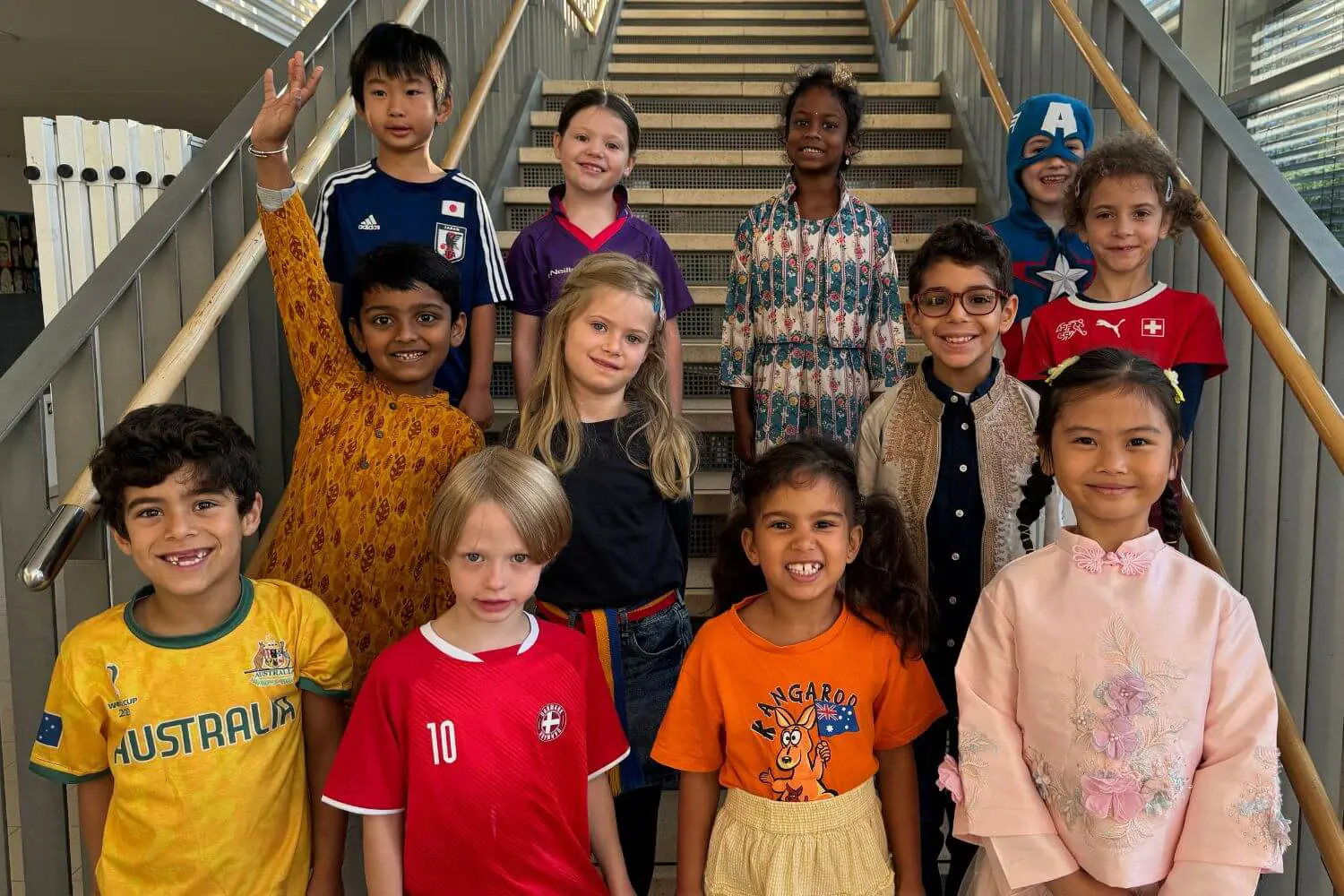
In all of our indoor and outdoor classroom environments, we invite, challenge, and support our children to build on their innate curiosities, interests, and talents. We believe that learning is a social process. Working together creates opportunities for all members of our community to benefit from our diverse international character.
Steve Barratt
Former Elementary School Principal
SENIOR SCHOOL

In the Senior School at ISD our goal is to support and challenge each of our students individually in an environment that stimulates both high-quality academic learning within the IB programmes, and social-emotional growth for their present and future well-being. Our students become active and engaged citizens positively contributing to a sustainable world.
Colin Campbell
Former Senior School Principal
THE DIPLOMA
|
|
We don’t believe in limiting access to the IB Diploma based on academic selection. Unlike other schools, we empower and support any student who is motivated to take on the challenge, ensuring they have the resources and guidance to succeed.
Our model has always been inclusive, offering every student the opportunity to pursue the programme in a nurturing and supportive environment. If we were to admit only the top third of candidates, the average score would likely be 39 points. However, we’re proud that, even with a fully inclusive approach, the results consistently exceed the world average.
The concepts of pride, creativity, risk-taking and curiosity, essential to nurturing inquiring, knowledgeable and caring young people, permeate and frame the work of all members of the ISD community.
IBO Accreditation Team Chair
2019
KEY CONCEPTS
|
INTERDISCIPLINARY UNITS |
|---|
|
To tackle the complex challenges of today's world, students need to think beyond traditional subjects. That's why we offer interdisciplinary classes in Grades 6-8 and units throughout the MYP, where students explore issues from multiple perspectives. These units are co-planned and co-taught for a collaborative learning experience. In Grade 6, students explore the environmental, social, and economic impacts of mega-projects. In Grade 7, they examine the ethical responsibilities of consumers and how their choices affect the world. In Grade 8, they focus on food supply systems and how to sustain themselves and their community during a crisis. |
|
CO-TEACHING |
|
Co-teaching leverages the expertise of multiple teachers to create inclusive, flexible learning environments that cater to the individual needs of every student. By combining best practices and collaboratively developing new strategies, we ensure continuous improvement in teaching and learning. In the Grade 5 learning community, students and teachers work together in a flexible environment. Through joint planning, instruction, and assessment, all teachers support the learning of every student. This collaborative approach consistently leads to success for students, teachers, and parents alike. |
|
POSITIVE DISCIPLINE |
|
Positive Discipline is a relationship-based approach that fosters responsible, respectful, and resourceful students. It focuses on understanding the reasons behind behaviour and finding long-term, positive alternatives. By addressing the root causes of misbehaviour, students learn to use their abilities constructively. With a focus on connection before correction, Positive Discipline teaches students valuable life skills through kindness, firmness, and emotional growth. Students actively practise these skills during class meetings and problem-solving scenarios. As a certified Positive Discipline school, ISD’s trained educators use a range of tools to build strong relationships and effectively address challenges such as power struggles, disrespect, and lack of motivation. |
|
RESTORATIVE PRACTICE |
|
Restorative practice aims to develop community through the building, strengthening and maintaining of relationships; and to restore relationships and manage conflict when things go wrong. Its approach is grounded in the importance of honouring people’s dignity, ensuring equity, and seeing the potential of all. Restorative Practice is about working with people to establish a clear and fair process by engaging all participants, developing a shared understanding, and creating clarity and agreement on what is needed moving forward. |
|
WELLBEING FOR LIFELONG LEARNING |
|
Well-being for Lifelong Learning is the process through which children and adults acquire and effectively apply the competencies of;
|
|
DIVERSITY, EQUITY & INCLUSION |
|
At ISD we recognise that diversity is vital to achieving out mission, living our values, and creating a sense of belonging for all. We work to ensure that all members of our community feel safe, secure, and welcome.
We celebrate individual differences and maintain an environment free from any discrimination based on age, ethnicity, family makeup, gender identity and expression, language, learning ability, nationality, physical ability, race, religion, sexual orientation, or socio-economic status. Our school does not tolerate physical, emotional, or sexual harassment. We remain neutral on all matters relating to religion and politics; our curriculum does not promote specific religious or political beliefs, however it does advance students’ knowledge and appreciation of the role that religion and politics play in the social, cultural, and historical development of civilisation. |
IB Diploma Results
Congratulations to the ISD class of 2025 on their outstanding IB Diploma Programme results.

